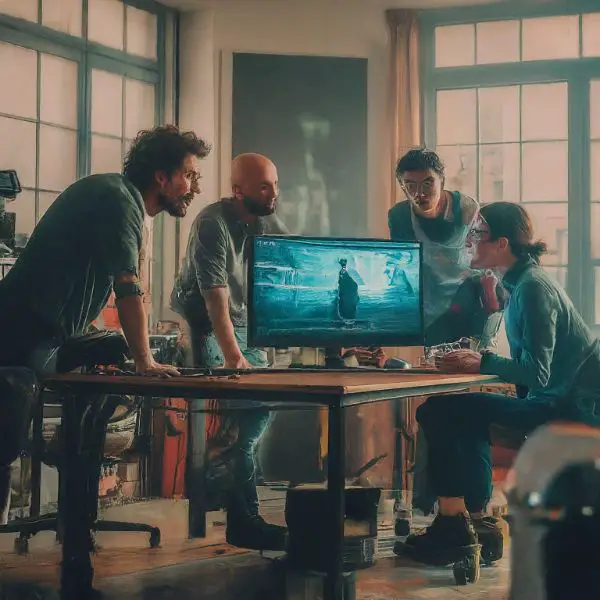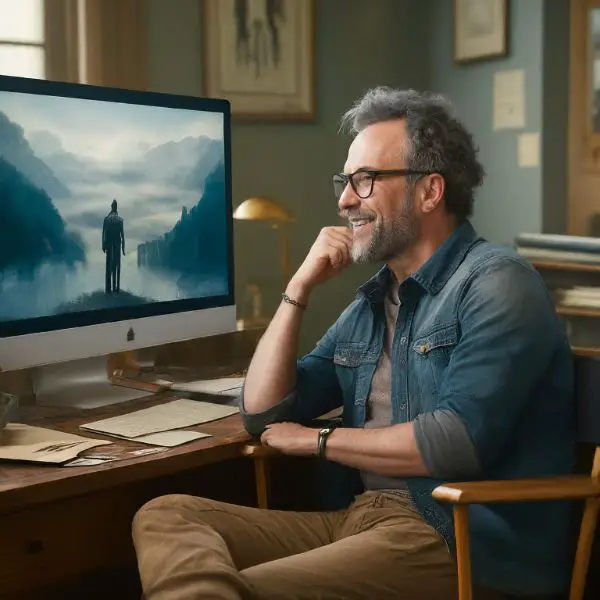
OpenAI's recent release of Sora, a text-to-video tool, has sent shockwaves through the tech world. Similar to the release of ChatGPT last year, many people are now worried about being replaced by AI. In this article, we will discuss which industries will be most affected by Sora's release and how we can adapt to these changes.
Affected Industries
Some people say that Sora's release will be a huge blow to the entire AI video industry. However, I disagree with this assessment. There are not many AI video companies in the world, and Sora's impact will likely be most disruptive to the following industries:
1. Traditional Film and Television Industry
The traditional film and television industry has a highly specialized division of labor. Many workers and professionals in this industry only participate in specific stages of production.
Only the director needs to be involved from the beginning to the end, coordinating with various departments such as art design, makeup, props, lighting, camera, photography, actors, screenwriters, and special effects. It can be said that if any link in the chain breaks, the entire project may fail.

However, if AI video continues to develop at its current pace, at least many simple shots, crowd scenes, lighting, and set design can be done with AI.
Which roles in the traditional film and television process will benefit most from AI video? Directors and post-production personnel.
These two roles need to have a holistic view of the final work, not just the lighting or set design of a single scene. With a clear goal, they can perfectly utilize the power of AI to determine which shots need to be completed by human actors and which shots can be directly generated by AI.
In this way, what used to take a year and cost tens of millions to produce a movie can now be done with AI in a tenth of the time and cost.
In my opinion, another trend is that the threshold for creating a film or television work will be greatly reduced. Many directors have spent years or even decades finally making a recognized film.
If AI video technology continues to develop, then young people with a good story in mind will be able to create a good film at a low cost. I am talking about creation, not just "shooting".

2. Advertising Industry
With the current development of AI video, many of the commercials we see can indeed be directly disrupted. The first to bear the brunt of this will be car commercials.
Most car commercials are just footage of a car driving on the road. The only difference is that some cars are driving in the mountains, some in the desert, some uphill, and some crossing rivers.
However, the traditional advertising company's quotation for such a one-minute video is basically in the millions. From a large group of people going to the mountains, from following the car to the drone, so the shooting cost, although it seems high, is mainly spent on hard work, not creativity.
Among the examples updated by OpenAI this time, there is a video of an old SUV driving on a mountain road. The dust raised by the dirt road is clearly visible in the warm sunlight, and the hills on both sides of the road are covered with redwood trees.
Watch the Video👇
Prompt: The camera follows behind a white vintage SUV with a black roof rack as it speeds up a steep dirt road surrounded by pine trees on a steep mountain slope, dust kicks up from it’s tires, the sunlight shines on the SUV as it speeds along the dirt road, casting a warm glow over the scene. The dirt road curves gently into the distance, with no other cars or vehicles in sight. The trees on either side of the road are redwoods, with patches of greenery scattered throughout. The car is seen from the rear following the curve with ease, making it seem as if it is on a rugged drive through the rugged terrain. The dirt road itself is surrounded by steep hills and mountains, with a clear blue sky above with wispy clouds.
If this clip alone were to be shot using traditional methods, it would be impossible to say how much money would be spent. More importantly, I have seen many car commercials that are not as detailed as this AI video.
Of course, it's not just car commercials, but also food commercials, introductions to many high-end hotels, and video recommendations for tourist attractions. These advertising works that do not require complex plots will be hit hard.
The impact I'm talking about is not just about lowering the entry barrier and leading to fierce competition. I once heard a case of a user who bid for a car commercial.
The traditional advertising company's quotation was at least 800k, and he bid 300k, and the level he came up with was also comparable to that of a large company, so he won the bid.
So in the same situation, what if I bid 3,000? For today's advertising companies, it is not just a matter of reducing costs and increasing efficiency, but also means that their organizational and business models will be reshaped.
3. Short Video Industry
Whether it is the industry leader YouTube or the popular TikTok in recent years, the global content consumption of short videos is now very high. Sora can now generate 60-second videos, which means that once this technology matures, the output of short videos will usher in a big explosion.
Whether you want to make a video of a mosquito flying from Earth to Mars or a science fiction video of a submarine navigating human blood vessels, all it takes is a single command. AI will bring a storm to the current short video industry, and those lacking creativity or distinctive features will struggle to ride this wave.
4. University Education
While not an industry in the traditional sense, the impact of AI on education will be significant. Many students study film and television production, but by graduation, their work might not surpass that of an elementary school student who knows how to command AI.
How to Deal with the Impact of Sora? 3 Tips
Now that we've discussed the potential disruptions, how can we navigate these changes? Here are three suggestions:
1. Embrace change and become an AI expert
- Don't fear AI; see it as an opportunity to learn and adapt.
- Focus on understanding AI's capabilities and limitations to use it effectively.
- Become a resource for those around you, showing them how to leverage AI.
2. Think like a one-person company
- Imagine yourself running a solo business specializing in a specific area.
- Identify your strengths and interests to find an AI-powered niche.
- Analyze your current work or life for pain points AI could address.
3. Stay curious, nurture your interests, and leverage your strengths
- Don't try to fix your weaknesses; focus on honing your strengths and leveraging AI for areas you lack expertise in.
- Curiosity fuels learning and exploration. Pursue your interests, as they may become your AI-powered advantage.
Conclusion
While OpenAI's Sora is impressive, AI's transformation of various industries is still in its early stages. Panic is unproductive; let's embrace AI and use it to our collective advantage. Remember, the future belongs to those who adapt and innovate, not those who resist change.
So, what are your thoughts on AI's impact? How will you harness its power in your own life or work? Share your ideas and let's create a future where AI empowers us to achieve the impossible.
Originally published at https://aiartgenerator.news on February 17, 2024.
Other AI Video Generators:
You might also be interested: